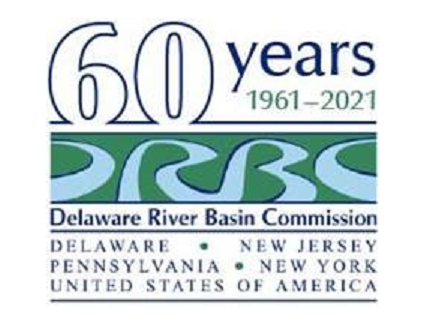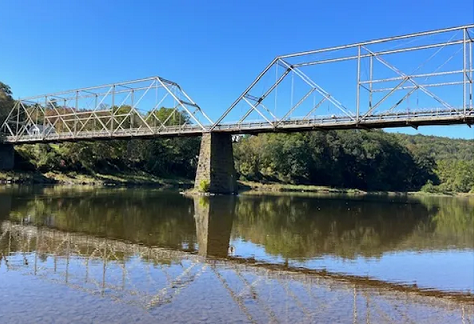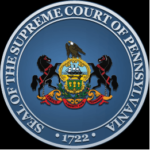Fight for Open Government!
Delaware River Basin Commission (DRBC) Rule Changes Threaten Public Input on Environmental Impacts
Proposed Rulemaking to shut down public disclosure and participation in the decisions that the DRBC makes regarding the Delaware River, the Delaware River Watershed and our communities.
Powers being concentrated in administrative staff, away from Commissioners, behind locked doors.
Please Take Action for Open Government
- Speak at the Public Hearing: November 13, 1:30pm up to 4:00pm and 6:30pm up to 9:00pm
Register to speak at the public hearing here:
https://www.nj.gov/drbc/meetings/proposed/notice_RPP_amendments.html#2
- Submit a Written Comment – due Wednesday, November 30, at 5 pm.
Written comments through DRBC system here: https://hearing.drbc.commentinput.com?id=T95htQGAg
To help with sorting out the changes and what they mean for river and community protection, we offer a TOP SIX Talking Points you can use for the upcoming Hearings and for written comment. We will be providing further detailed discussion on the various sections throughout November as we approach the Hearings and the written comment deadline.
To start, here are some points on the sections that are proposed for amendment by the DRBC.
TOP SIX Talking Points:
- Administrative Staff decisionmaking cuts out the public. The Executive Director is given far too much authority over many crucial decisions and these are made behind closed doors, without the public and without a vote by the DRBC Commissioners. These include: the power to decide whether or not a change to a project is “material” (if it is “materials” it would open up for more robust review); and decisions about the submission of applications for projects, what is required in an application and when an application is complete; the extension for some permits for as many as 5 additional years.
- Key Permits given a pass. Extension of Permits without an expiration date are given favored status, such as the Gibbstown LNG Export terminal docket. The Executive Director is being invested with exclusive authority regarding extension of permits that removes public input completely and relieves the Commissioners of their responsibility to review and approve extensions. This legitimizes the behind-the-scenes decision making that undermines government accountability and public trust.
- Low Bar for the extension of Existing Projects that haven’t been built. $1M is set as a “minimum” amount expended to decide if a project has been sufficiently invested in, and even that value can be disregarded under certain circumstances. No foundation is provided for this amount and no substantive explanation of what “substantial funds in relation to a project” really means. And, the Executive Director has the power to decide if the amount expended is substantial.
- Intimidate the public so they won’t litigate a project. They are allowing the sponsors of a project to claim that litigation by opposing parties is an excuse that can be used to explain why they haven’t built or spent sufficient funds on a project that they want extended.
- Loophole Word – “Material”. The subjective and value-loaded term “Material Change” and “Materially” are used throughout the proposed rulemaking – yet no clear definition is available, only a bureaucratic explanation. This terminology is not easily understandable and clouds objectivity in decisionmaking. It allows for varying interpretations for different projects, which is unfair, including unjust for the public who must live every day with the decisions that are made.
- The Public Requires Freedom to Information! DRBC is removing all references to the federal Freedom of Information Act from its rules and is setting up an alternative DRBC-centric system that leaves many aspects unaddressed or in the hands of the Executive Director, such as forms, reason for denial, and how costs will be assessed fairly, including if a waiver of fees can be requested like other agencies allow. The DRBC must provide a prescribed public access system that is clear, user-friendly, and affordable to assure public access to public records. The public needs something concrete to rely on. And it’s proposed that the Executive Director determines whether or not to disclose requested information, deciding unilaterally if a disclosure is in the public interest! This invests unfair control over the information in an administrator who may not even be qualified to make such legally important decisions. The public needs to take part in DRBC decisions but without access to information, we can’t do that effectively. Information is power and we have a right to it!
We will be adding more tips for comments as we progress through November – please revisit us and submit as many comments as you like!
The DRBC has proposed changes to their Rules of Practice and Procedure. These changes are largely carving in stone several of the practices the DRBC already uses when they make permitting and policy decisions. Many of these practices we have protested in the past because it has led to bad decisions by the DRBC. Most notably, the DRBC Executive Director unilaterally approved the extension of the approval for the Gibbstown LNG Export Terminal Project last year without any public input and even without a vote or public discussion by the DRBC Commissioners – the Governors of the four watershed states (New York New Jersey, Pennsylvanian, and Delaware) and the Army Corps of Engineers, representing the federal government (President Biden). Only because the community cried “FOUL!” when Delaware Riverkeeper Network discovered the clandestine approval through a Freedom of Information Act request was the secret decision to extend the permit discussed at a public meeting and voted on by the Commissioners. This kind of back room decisionmaking should be overthrown, not memorialized into regulations!
We, as a Coalition of organizations, community groups, and frontline residents from throughout the Delaware River Watershed and beyond, have fought for many years for greater transparency and fair opportunities to provide meaningful and informed public participation in the approvals and policies that the DRBC makes. These critical decisions directly affect the quality of our environment, our drinking water, our air quality, the diversity and health of the Delaware River, its species, habitats, ecosystems, tributaries and communities throughout the entire magnificent Delaware River Watershed. We cannot effectively take part and influence outcomes if the decisionmaking process is not open and interactive, with all important decisions and the underlying information about them fully disclosed and available for review and comment. We also have advocated for the DRBC Commissioners to be hands-on involved and engaged with the decisions that are made as these representatives of our elected government are accessible to us, as members of the public, and they are required to respect our rights and protect the environment for the public good. That is not what this rulemaking proposes to do. In fact, it does the opposite in almost all of its proposed sections.
DRBC published a Notice of Proposed Rulemaking & Public Hearing on amendments to their Rules of Practice & Procedure. See the Notice here: https://bit.ly/3QE03Sy
For full details on DRBC website go here: https://www.nj.gov/drbc/meetings/proposed/notice_RPP_amendments.html#docs
Please attend the DRBC’s November 13 Hearing to speak up for your right to be a meaningful voice in the DRBC decisions that impact us all and our environment!
Sign up NOW for the Public Hearings: https://www.nj.gov/drbc/meetings/proposed/notice_RPP_amendments.html#2
Submit a Written Comment, due 5pm, Nov. 30: Written comments along with any attachments submitted through DRBC system: https://hearing.drbc.commentinput.com?id=T95htQGAg and see DRBC guide on how to submit here: https://www.nj.gov/drbc/meetings/proposed/notice_RPP_amendments.html#3
Please feel free to use the provided TOP SIX Points and/you can also delve deep into the proposed rulemaking – DRBC’s redlined version and supporting information is available on their website: https://www.nj.gov/drbc/meetings/proposed/notice_RPP_amendments.html#docs
Thank you for taking action for open government so people can influence the decisions that affect us!






